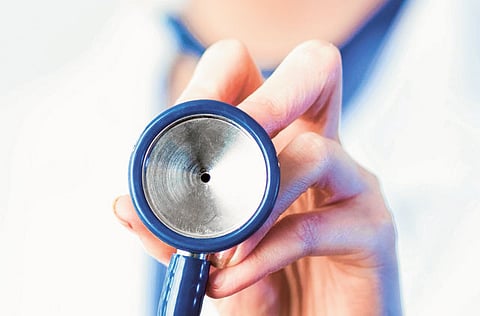Reality check
A stitch in time saves nine, goes the saying. Have you had your complete medical check up?

Habitual visits to salons, gym workouts, movies, mall-hopping and dining out, all these get woven into the weekly agenda. However, when it comes to annual health check-ups, they are often passed by for lack of time.
42-year-old Nigel Pinto, director of sales at Gearhouse says, "I have never been for any annual or executive health check. I don't feel like I need it. Perhaps I will now as I have given up smoking and drinking".
"Every year I donate blood — twice or even thrice — there they do some routine blood work," says Farah Flischer, 41, a private banking executive. "Apart from this I get regular gynaecological tests done, but have never gone for an executive check because I suppose I have not had any medical issues. Infact I have insurance and must find out now if my plan covers annual check ups."
"Most chronic diseases today start without much warning or alarming symptoms and are usually detected late, when the disease has already manifested with complications," Dr Nand Kishore, specialist physician, NMC Specialty Hospital explains. "Annual health check-ups can detect these diseases at an early stage and effectively control them."
The silent killers
Medically referred to as "silent killers", lifestyle diseases such as diabetes, hypertension and obesity are on the rise in the UAE. The World Health Organisation (WHO) has listed the UAE among the top six of ten countries, with the highest prevalence of diabetes, in its first global status report on Noncommunicable Diseases 2011.
With only 19 per cent of the population getting sufficient exercise, cardiovascular deaths emerged as the leading cause of mortality in Dubai, according to a DHA 2011 survey, with one in every five deaths attributable to CVD.
Regular check-ups are the wake-up call to making lifestyle changes. Clinics and hospitals across the UAE offer comprehensive executive and annual medical packages. According to Dr Anees Fatima, family medicine specialist at The City Hospital, executive check-up packages are designed for individuals with no history of prior illness.
"An executive health check-up is a pre-formed package of tests and investigations. It does not take into consideration any co-existing medical conditions," Fatima says.
"An annual health check, on the other hand, involves what the consulting physician deems medically necessary for an individual."
A sense of apathy
Despite the writing on the wall, there is a sense of apathy associated with getting regular check-ups. Expatriates in Dubai without insurance prefer to get extensive health checks while visiting their home countries. Some, however, give it a total miss.
"I don't get any yearly check ups done as they are too expensive and I have no insurance," says Carmelita Quirante Consulelo, a Dubai-based hairstylist. While Priya Limaye, 42, a business manager at a software company, says she prefers to go home for medical checks as they are very expensive here. "I have insurance but even then one has to shell out from one's pocket. It comes to a neat two to three thousand, so now I do mine when I go to India."
Education and preventive medicine are essential requirements to facilitate a pro-active approach towards healthcare. But lack of awareness is not the reason, says Dr Shagufta Zia, specialist family medicine, Medcare Hospital. "People know more about health issues now compared to a decade or two ago because of all the information available via technology and people know how to access this. They either think it will not happen to them as they have no symptoms, are too young for any chronic conditions such as diabetes and hypertension or it is the price," she adds.
With prevention being better than cure, the modern-day mantra accents meeting with a medical practitioner annually. Kishore advises patients to go for a regular health check once in three to five years after crossing 40.
"There is no substitute for patients and doctors seeing each other face to face on a regular basis, especially when no specific health problem is bringing them together," Kishore says.
"This interaction helps develop a patient-doctor trust and rapport, which is the essence of preventive medical care in the present society."
- Shahana Raza is a UAE-based freelance writer


